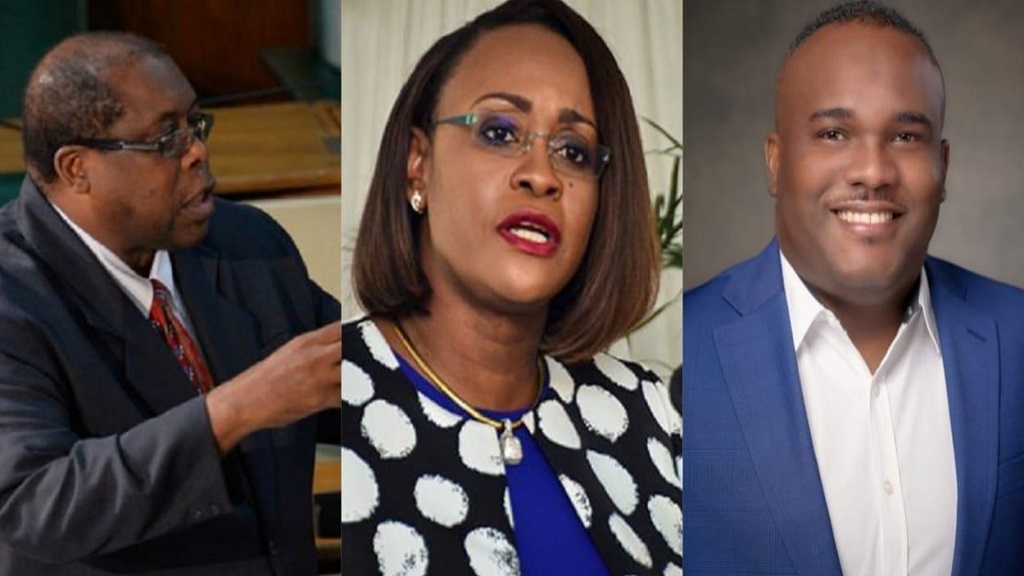JSC members reject Brown’s suggestion re work on MPs’ job description

At least three members of a Joint Select Committee (JSC) of Parliament that has been convened to review a green paper which outlines job descriptions for Members of Parliament (MP) earlier this week appeared to reject a suggestion by Opposition Senator Lambert Brown that parliamentarians should not be part of the process of mobilising people to attend town hall meetings to discuss the document.
Brown told the committee that he is uncomfortable with MPs being part of a process to mobilise people to discuss a document which relates to their job description.
“Chair, shouldn’t we leave that? I am a bit cagey about parliamentarians mobilising people to speak about parliamentarians’ work,” Brown told the committee chairman, Marissa Dalrymple-Phillibert.
But Government Senator Abka Fitz-Henley noted that the proposal before the committee would involve a raft of other stakeholders, including the Opposition and the church, being welcomed to not only make submissions to the committee, but also mobilise people to attend the town hall meetings.
Fitz-Henley said all views should be allowed to contend, and rejected the notion that MPs should be excluded from the process.
“I think that the perception of parliamentarians has been negatively affected by how some of us speak about each other, and we have to be careful about that. I see nothing to preclude MPs from being among the stakeholders who mobilise people to discuss what the people who elected them expect of them. Indeed, MPs on both sides of the political aisle are among the most effective mobilisers of people,” said Fitz-Henley in response to Brown.
Fitz-Henley was supported by East Rural St Andrew MP, Juliet Holness.
She told the committee that she takes umbrage to a notion among some that parliamentarians are to be regarded as the ‘worst of the worst’, and are to be excluded from important processes such as mobilising people to discuss issues which are relevant to how MPs are expected to carry out their functions.
“I take issue with us always seeming to be in a place that we behave as if we are the worst of the worst, and we continue to feed the narrative in everything we do and say and how we conduct our affairs. We must hold ourselves in high esteem and regard, and this process is actually a part of doing that, saying to the people, ‘we are opening up ourselves to you, we want your input, and we want to be held accountable,’” commented Holness.
The committee chairman and House Speaker, Dalrymple-Phillibert, concurred with the sentiments that were expressed by Fitz-Henley and Holness.
The Joint Select Committee members also agreed to complete their work before the end of the parliamentary year in February.
Brown also suggested that the committee should amend its terms of reference to include a review of the roles of not only MPs, but also senators.
In response to the suggestion that the committee should amend its terms of reference to include a clear definition of the roles of senators, Fitz-Henley said he does not believe the suggestion should be summarily dismissed.
However, Fitz-Henley urged the committee not to lose focus of what he argued is an important context of why the green paper focuses on clarifying the roles of MPs.
Fitz-Henley said while the role of senators is clearly outlined in the constitution and has remained relatively constant, there is ambiguity about what is to be expected of MPs because the roles have evolved into one where people appear to expect their elected representatives to perform the functions of a benefactor, among other duties which perhaps were not contemplated when the constitution was being crafted several decades ago.
The Government senator said in that context, it is not coincidental that the green paper that was tabled by Prime Minister Andrew Holness focuses on establishing clearly defined roles for MP, to establish clarity about what should be the nature of the duties associated with that elected office two decades into the 21st century.
Fitz-Henley was supported by South West St Elizabeth MP, Floyd Green, who reasoned that the committee should focus on the job description of MPs before contemplating a move to expand its terms of reference.
link







